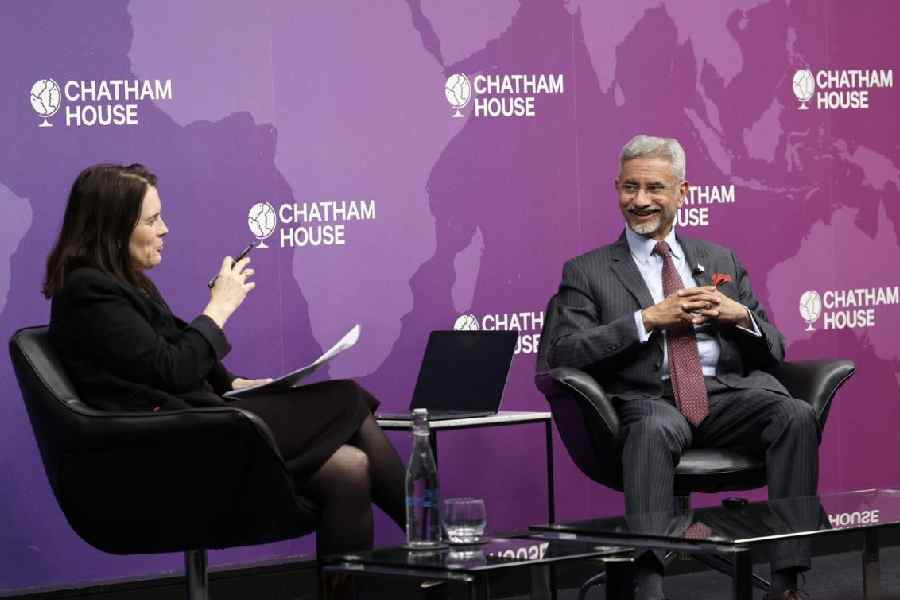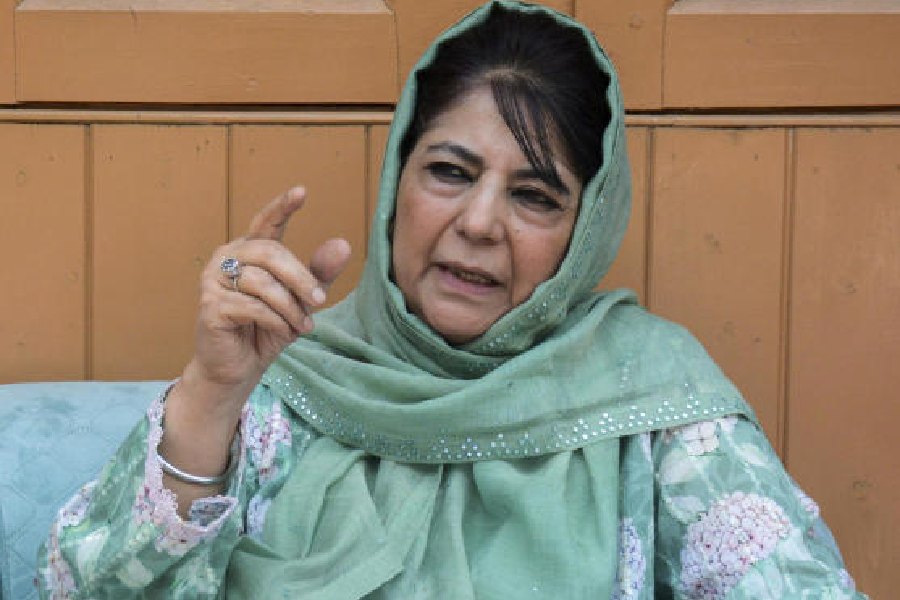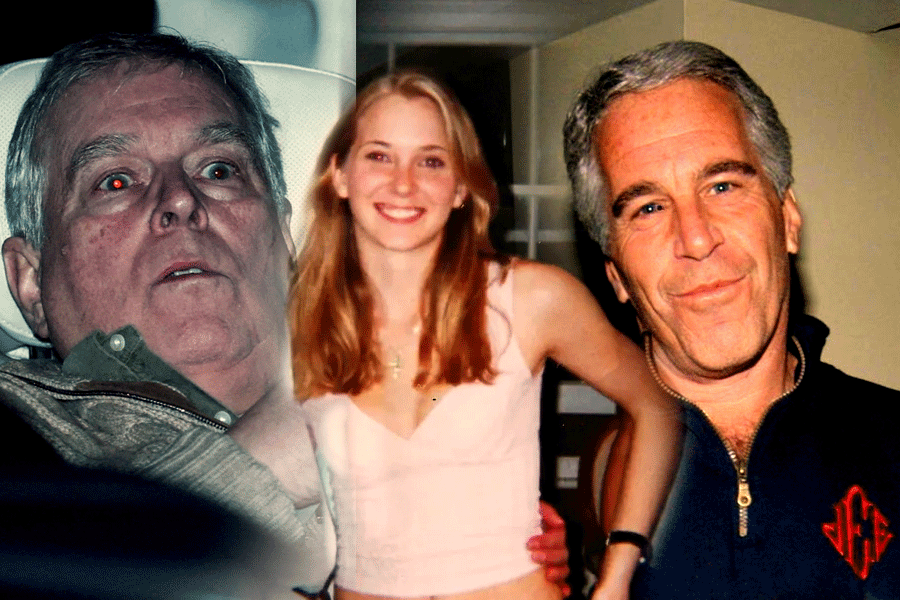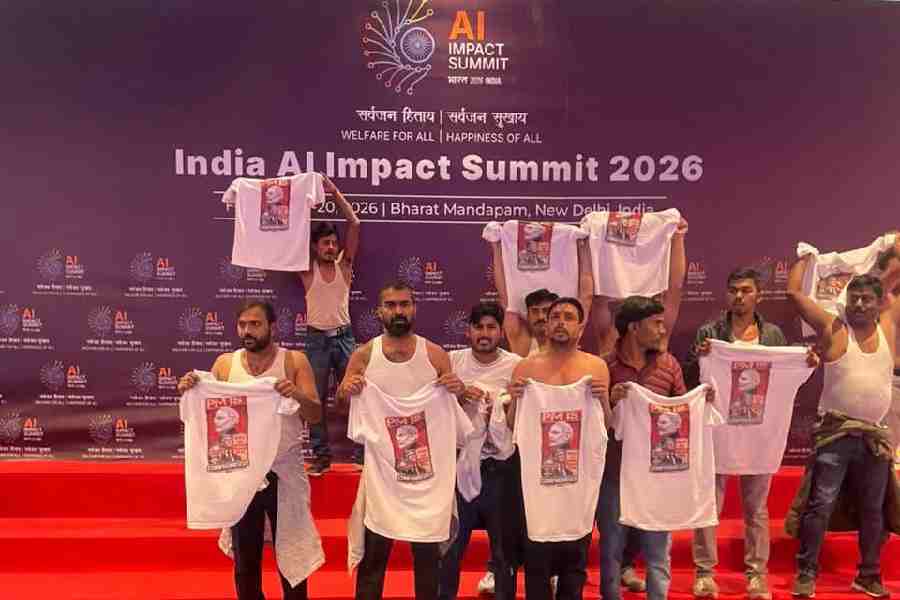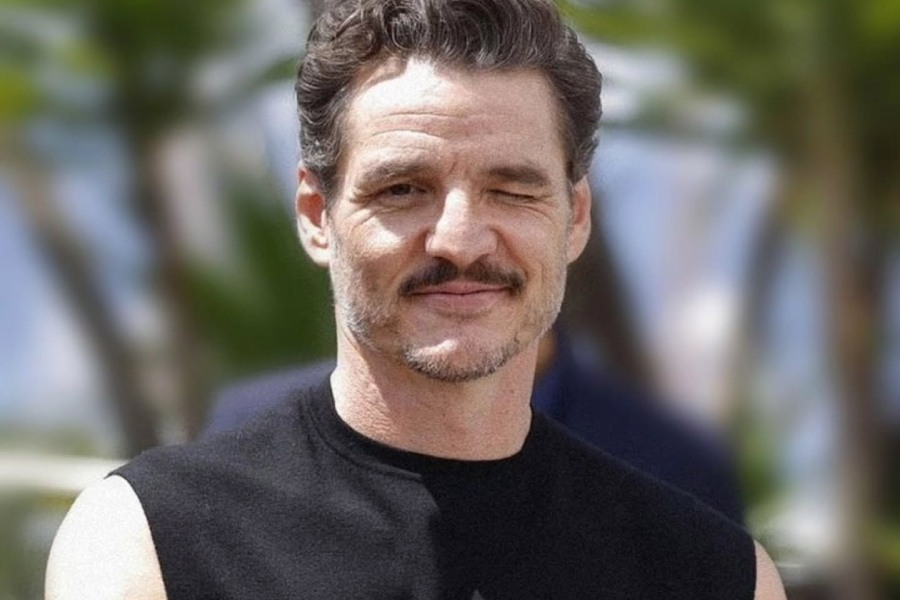US President Donald Trump’s unrelenting tariff offensive has shaken world capitals and markets, but the Narendra Modi government appears unrattled, even approving.
“We see a President and an administration which, in our parlance, is moving towards multi-polarity and that is something that suits India,” external affairs minister S. Jaishankar, who is on a six-day visit to the UK and Ireland, said in London on Wednesday evening.
He added that the two nations had agreed on the need for a bilateral trade pact.
Jaishankar was at a session titled “India’s rise and role in the world” at the Chatham House think tank when he was asked to comment on the first few weeks of the new US government and, specifically, on Trump’s reciprocal tariffs. His comments can be construed as India’s first official reaction to Trump’s slew of policy
announcements.
Trump had on Tuesday declared reciprocal tariffs from April 2 on countries such as India before terming the steep duties these countries levy on American products as
“very unfair”.
An early assessment of the likely impact of the reciprocal tariffs, done by Citi Research, pegged the potential losses for Indian companies at about $7 billion a year in sectors such as chemicals, metal products, jewellery, pharmaceuticals and food products.
On the specific issue of tariffs, Jaishankar noted that commerce minister Piyush Goyal was currently in Washington to discuss a bilateral trade pact, following talks between Prime Minister Modi and Trump at the White House last month.
“We had a very open conversation about it (tariffs) and the result of that conversation was that we agreed on the need for a bilateral trade agreement,” Jaishankar said.
Till late on Thursday evening, there were no official comments on how the talks on the proposed bilateral trade agreement were progressing.
Quoting sources, CNBC-TV18, however, reported that the US had sought a zero-to-zero tariff regime on almost all products traded between the two countries, barring agricultural goods.
According to the report, Goyal had held high-level trade talks in Washington, engaging with both the US trade representative and the US secretary of commerce.
Officials from both countries are expected to reconvene after reviewing the outcomes of the latest discussions, the report added, without mentioning any timetable for the possible reconvening.
The report added that the US was unlikely to make any exceptions for India in its new reciprocal tariff policy, which kicks in on April 2.
Pressed to elaborate on whether the US was accepting multi-polarity or encouraging it, Jaishankar said: “I think practising, and by practising, promoting.”
He added: “If one looks at our relationship politically, we have never had any issues with American Presidents, at least, in recent times. There is no baggage which we carry, or burden that the relationship carries.”
Flagging the Quad — which was restarted during Trump’s first term in 2017 — Jaishankar said this was a shared enterprise, underscoring that everybody paid their fair share in this grouping of the US, Japan, India and Australia.
“There’s no spat about who’s paying for whom; there are no free riders in Quad,” he said.
Other priorities of the Trump White House that Jaishankar saw as working for India were in the areas of energy pricing, tech and connectivity.
“He seems to be committed to keeping energy prices reasonably affordable and stable. We welcome that. He is putting a lot of emphasis on tech, on the development of tech, on the use of tech as a game-changer in global politics,” the minister said.
“That offers a lot of possibilities for us. He appears open to connectivity initiatives of a certain collaborative nature. We have deep interests in that.”
Dollar dominance
Asked whether New Delhi had a problem with dollar dominance in the international monetary system, Jaishankar said: “We have never had (any) problem with the dollar. Our relations with the US are probably at the best ever that they have been. We have absolutely no interest in undermining the dollar at all. On the contrary, lot of the problem in our region is the lack of availability of the dollar. I would say many countries want to see more dollars, not less.”
Asked specifically about the de-dollarisation discussion within Brics — a grouping of Brazil, Russia, India, China, South Africa and some other countries — and whether it would happen in the next decade, Jaishankar played it down.
“I don’t think there’s any policy on our part to replace the dollar. At the end of the day, the dollar as the reserve currency is the source of international economic stability. And right now what we want in the world is more economic stability, not less,” he said.
“I don’t think there’s a unified Brics position on this. Brics members — and now we have more members — have very diverse positions on this matter. So the assumption that somewhere there is a united Brics position on the dollar is not borne out by facts.”
India-UK trade talks
While hardly any news on the likely trade pact with the US has trickled out of the Indian establishment, Jaishankar said he was “cautiously optimistic” about the India-UK Free Trade Agreement negotiations following his ministerial discussions over the past few days.
“It’s a very complicated process. So, given the complexity, it’s natural that it would take time…. from my discussions with Prime Minister (Keir) Starmer, foreign secretary David Lammy and (business) secretary Jonathan Reynolds, I got a consistent message that the British side is also interested in moving forward,” he said.
“I had a few points to convey on behalf of my concerned colleagues as well. So, I’m cautiously optimistic and hope that it doesn’t take that long.”
Goyal and Reynolds, the UK secretary of state for business and trade, had announced the resumption of negotiations for the proposed FTA, for which talks had begun in January 2022.
India is keen on greater access for its students and professionals to the UK market, and is pushing for greater export opportunities at zero customs duty.
The UK is seeking a significant cut in import duties on goods such as scotch whisky, electric vehicles, chocolates and a range of confectionaries.

